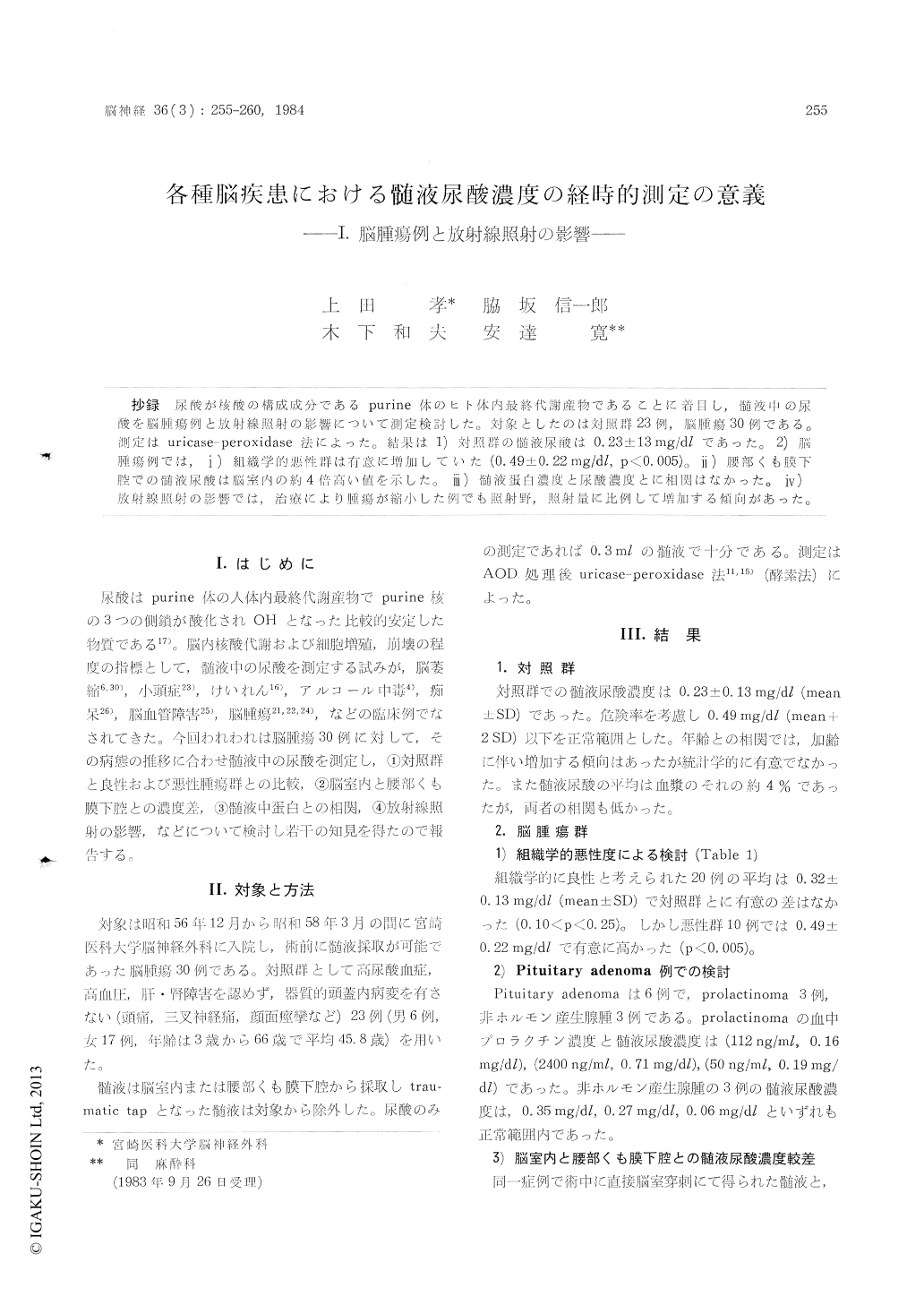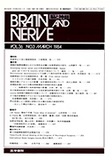Japanese
English
- 有料閲覧
- Abstract 文献概要
- 1ページ目 Look Inside
抄録 尿酸が核酸の構成成分であるpurine体のヒト体内最終代謝産物であることに着目し,髄液中の尿酸を脳腫瘍例と放射線照射の影響について測定検討した。対象としたのは対照群23例,脳腫瘍30例である。測定はuricase-peroxidase法によった。結果は1)対照群の髄液尿酸は0.23±13mg/dlであった。2)脳腫瘍例では,i)組織学的悪性群は有意に増加していた(0.49±0.22mg/dl,P<0.005)。ii)腰部くも膜下腔での髄液尿酸は脳室内の約4倍高い値を示した。iii)髄液蛋白濃度と尿酸濃度とに相関はなかった。iv)放射線照射の影響では,治療により腫瘍が縮小した例でも照射野,照射量に比例して増加する傾向があった。
Uric acid is the end product of the purine me-tabolism in the human and is mainly excreted to the urine. The studies on corebrospinal fluid (CSF) uric acid in patients with various neurological diseases were reported in the literature. In the present study the authors discussed the clinical value of the sequential study of the CSF uric acid content in patients with brain tumors. CSF was investigated for uric acid in 23 controls and 30 cases of brain tumor.
The results were as follows;
1. The mean value and standard deviation of the uric acid in CSF in controls was 0.23±0.13 mg/dl.
2. The uric acid in CSF increased in patients with malignant brain tumor (0.49±0.22 mg/dl, p <0.005), but was in normal range in patients with benign brain tumor (0.32±0.13 mg/dl, 0.10 <p <0.25).
3. There was no significant correlation between CSF uric acid and CSF protein contents.
4. Uric acid in the lumbar CSF was approxi-mately 4 times higher than in the ventricular CSF in patients with brain tumor.
5. The CSF uric acid had progressively increa-sed during irradiation to the whole brain.
The factors contributing to increase of the uricacid in CSF were thought to be 1) increased per-meability of blood-CSF barrier, 2) global damage of brain tissue, 3) increased uncleic acid catabo-lism in the central nervous system (CNS) for example in tumor, inflammation or immunoreac-tion, 4) increased of xanthine, hypoxanthine or xanthine oxidase activity in the CNS, 5) directly increased of plasma components into the CSF due to such as subarachnoid hemorrhage, intra-ventricular hemorrhage, bleeding in the tumor or surgical operation, 6) dysfunction of the CSF dynamics.
The sequential study of the uric acid in CSF is important for patients with various cerebral diseases, to evaluate the metabolic change and damage in the tissues in cranium, however the dynamic conditions in a multi-compartment system like this were extremely complicated.

Copyright © 1984, Igaku-Shoin Ltd. All rights reserved.


